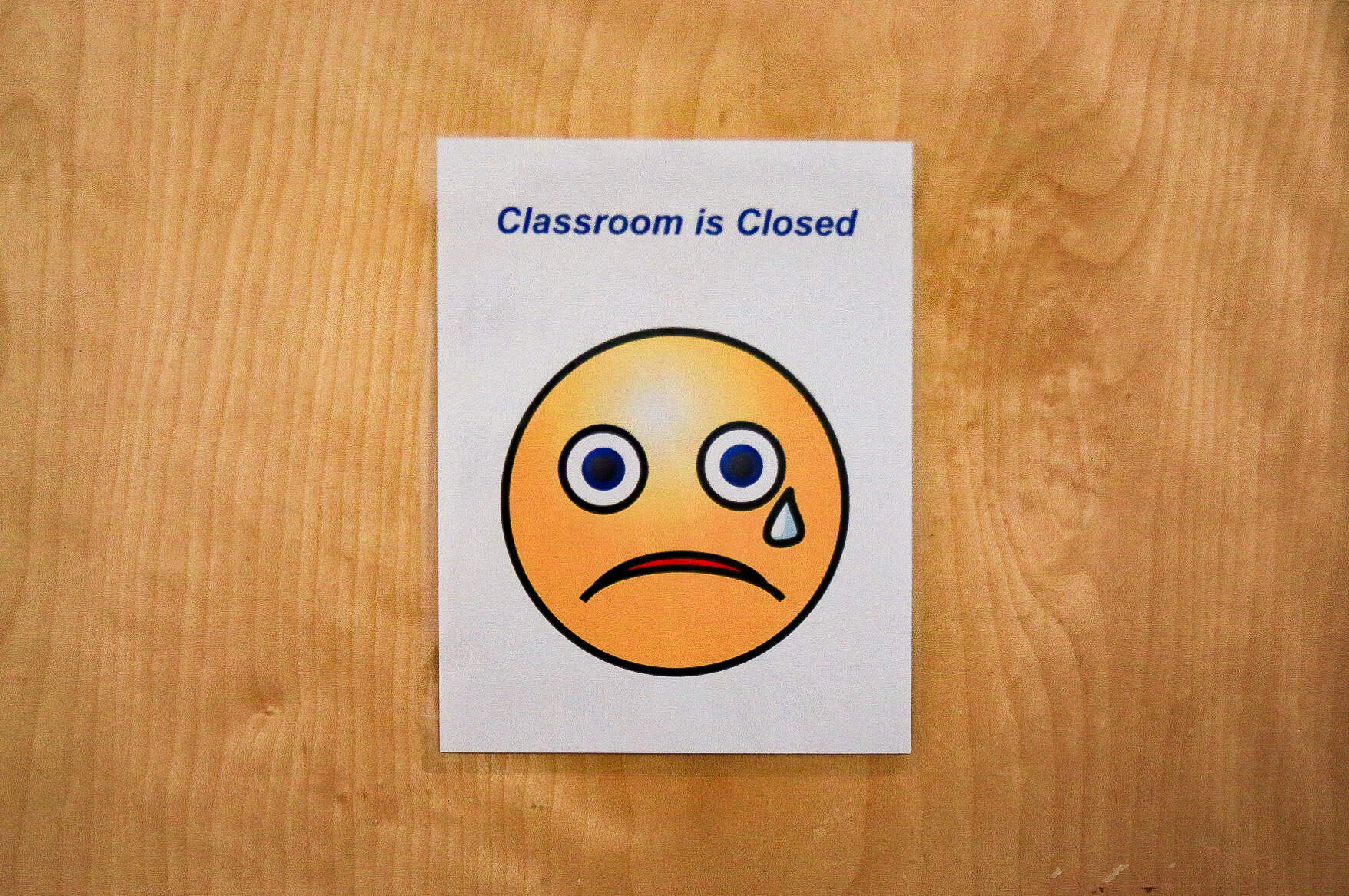Advertisement
Without enough teachers, Head Start programs in Mass. 'resize' and close classrooms
Resume
After her daughter was born in 2020, Erin Abreu was in a pinch. Like many new mothers, she couldn't afford private child care, and without someone to watch her baby, she couldn't sign up for more hours at her health care job.
But she soon found a lifeline at the ABCD Head Start Center in East Boston. The program provides free child care for infants and toddlers from low-income families.
Eventually, with Adalynn at Head Start for 10 hours each weekday, Abreu was able to take on more hours at work. She could soon afford to move out of a shelter and into her own apartment.
Abreu expressed gratitude for what the program continues to bring to her and her daughter's lives.
Adalynn, now 3 years old, receives healthy meals and dental care at Head Start. She spends her days learning numbers and words with kids her age.
“She knows how to identify letters, she tells me how her day went in school. She’s polite. She’s respectful,” Abreu said. “She’s learned most of that here at ABCD Head Start.”

But when Abreu tried to enroll her second daughter at the same center last year, she hit a wall: the newborn was placed on a waitlist.
Nearly a year later, the family is still waiting.
Recent staffing shortages at Head Start programs have forced centers across Massachusetts to cut slots for children, placing infants and toddlers on lengthy waitlists for its affordable care and educational opportunities. At least three centers — in Greenfield, Amherst and Boston — have shut down entirely.
Head Start provides crucial services, like meals and early learning, to roughly 11,000 Massachusetts children from infancy to age 5. Children qualify for Head Start if they're in foster care, lack housing or their families meet federal poverty thresholds.
Early education experts blame the worker shortage on low wages.
According to Head Start, its teachers in Massachusetts make on average $39,000 a year — or half the average salary of a public K-12 teacher in the state.
“Our teachers deserve to be making much more than they’re making, and the missing factor here is money,” said Michelle Haimowitz, executive director of Massachusetts Head Start. “More money could solve these problems.”
Head Start gets most of its money from federal funding: $180 million for its Massachusetts program last year. Massachusetts is one of several U.S. states that supplements those federal dollars, allocating another roughly $17.5 million for Head Start last year.
Still, program directors argue state and federal funds have not kept up with rising operational expenses, like rent or utilities. And, the strained budgets, they say, make it difficult to pay teachers competitive wages.
“What we receive is not enough to do the work that we are asked to do,” said Mary Dooley, director for the ABCD East Boston center.

Some Head Start directors said they've resorted to permanently reducing classroom seats to cope with the staffing constraints and make room in their budgets for teacher pay bumps.
Directors applied to lower enrollment numbers with a so-called "change of scope" form. Once approved by the federal Office of Head Start, centers can receive the same annual federal funds while serving fewer students.
Several directors said resizing allowed them to use the savings to boost teacher pay.
The formal change also ensured the centers were not flagged as "under-enrolled," a status that means a Head Start facility does not serve the number of students it says it does on paper. "Under-enrolled" programs risk losing federal funds.
The agency that runs Head Start in the Pioneer Valley was supposed to enroll a little more than 400 children in the Springfield metropolitan area. But severe understaffing meant the program could serve far fewer kids. The under-enrolled program was at risk of losing nearly $3 million.
In the past year, the agency cut a third of its 438 seats and closed two of its 10 centers. Its leaders say they hope the federal Head Start program will approve its sizing changes. It also stopped providing transportation services for most kids.
Anat Weisenfreund, the agency’s director, said the cuts allowed her to increase teacher salaries by more than 25%. The highest paid teachers now make $58,000 a year.
“We filled almost all of our vacancies within six weeks,” Weisenfreund said. “It’s really very simple. You gotta pay people a fair and decent wage.”
"We filled almost all of our vacancies within six weeks. It’s really very simple. You gotta pay people a fair and decent wage."
Anat Weisenfreund
While Weisenfreund said the centers are providing quality services to enrolled children, she said she's frustrated by how families jockeying for available slots were affected.
“It is directly on the backs of children and families by preventing access,” she said.
Children already in the program will not lose their placements. However, in mid-October, roughly 200 kids idled on the waitlist.
Haimowitz said families are stuck on stubborn waitlists in other communities, too. Among them, according to several program leaders, are Head Start centers in Gloucester, Beverly, Salem and New Bedford. In Boston, more than 400 children are on program waitlists.
Several Head Start directors said resizing centers won't ultimately keep teachers' salaries competitive. But they said other options don't exist absent an influx of federal dollars.
Back at the East Boston Head Start, Abreu’s 3-year-old Adalynn circled up on a fuzzy rug with her classmates. The toddlers hooked their tiny fingers around a large elastic band, stretching it out.
“Big, big, big,” the kids chanted together as the band extended to the width of the rug.
A few doors down, the lights are off. About 15 chairs are stacked atop desks. A sign pinned to the door explains the classroom is closed.
It's unclear when another space will open up for Adalynn's sister and the other two-dozen or so kids stuck on the center's waitlist.
Correction: This story has been updated to clarify that Head Start leaders are hopeful — not expectant — that their applications for resizing will be approved by federal program overseers. We regret the error.
This article was originally published on November 09, 2023.
This segment aired on November 9, 2023.
